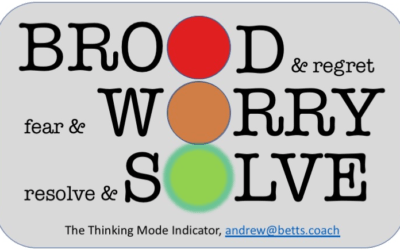As explained in a previous post, “And what would you like to have happen?” is a magic spell, taken from Clean Language and the Five-Minute Coach, that helps you inspire others to find their own solutions.
When you cast the spell on someone, their desired outcome magically appears and they rush off to work out an action plan. Sometimes.
Alas, as any Hogwarts student will tell you, magic spells only work if you know how to use them. When this particular one goes wrong, it’s a monkey that materialises, rather than a desired outcome.
A monkey represents a problem. When someone “passes you their monkey”, it means that they’ve dumped onto you something that was worrying them.
When the, “And what would you like …” spell fails, it’s because the other person has described what they don’t want – their problem – rather than what they do want – their outcome.
“And what would you like to have happen?”
“The location app has crashed AGAIN!” (monkey!).
It’s important to keep casting the spell until the monkeys go away, because if you don’t, then you get caught up in the problem yourself. Either by investigating it or by sharing in the moaning and complaining that the other person has started.
So keep going …
“Hm, the location app has crashed; and what would you like to have happen?”
“It’s blocking my verification work and we’re meant to finish this week!” (monkey!).
“Ok, and what would you like to have happen?”
“I need a deadline extension”.
Bingo! We have a desired outcome. It’s a change of perspective and your colleague can now focus on finding a way to achieve that outcome.
Try it. Honestly, it works.
The Five-Minute Coach is just one of the tools that I use regularly in consulting and training work with customer-facing teams. You can find out more from this short video and these recent posts on the use of individual leadership skills in Technical Sales:



